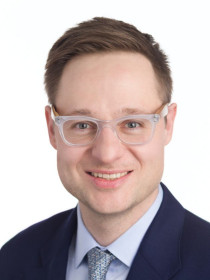
Tobias Schulze-Cleven
Connect with Tobias
About Tobias
Schulze-Cleven's research examines the comparative political economy of labor markets and higher education in rich democracies. Trained as a political scientist and working in a department of labor studies & employment relations, Schulze-Cleven engages across disciplines to understand the politics of work in the digital era. He has published in outlets such as Comparative Political Studies, Higher Education, New Political Economy, and Politics & Society. He serves as the Co-Director of the Center for Global Work and Employment at the School of Management and Labor Relations.
Contributions
Can Lessons from Abroad Help Solve the Crisis in U.S. Public Higher Education?
In the News
Publications
Examines how the economic crisis will affect higher education and vocational training in the U.S. and Germany. Discusses both the shared and differing characteristics between German and American education models.